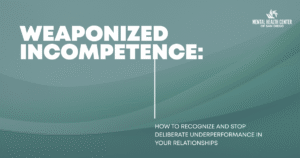In the dynamic landscape of modern relationships, new terminology continues to emerge, reflecting evolving social norms and desires. One such concept that has sparked widespread curiosity is the idea of a “unicorn” in dating. While the name might conjure images of mythical creatures, in the context of relationships, a unicorn refers to a rare individual—most commonly a bisexual woman—who is open to joining an established couple for romantic or sexual experiences. This unique arrangement, often sought after in polyamorous and ethically non-monogamous circles, can be both exhilarating and complex.
Understanding what a unicorn in dating truly means is essential for anyone considering this arrangement. Whether you’re part of a couple seeking to expand your relationship or an individual intrigued by the idea of becoming a unicorn yourself, this comprehensive guide will explore the definition, roles, benefits, challenges, and best practices for successful unicorn dating. We’ll also debunk common myths and provide actionable tips for navigating this nuanced aspect of modern love.
What Is a Unicorn in Dating?
The term “unicorn” in dating originated within the swinger and polyamorous communities. It describes a person—most frequently a bisexual woman—who agrees to join a pre-existing couple, often forming what is known as a “throuple.” The label “unicorn” highlights the rarity of finding someone who not only fits the desired criteria but is also willing to engage in such a dynamic. Unicorns are often sought after for their openness, flexibility, and the ability to connect with both members of the couple.
This role requires a unique set of interpersonal skills, emotional intelligence, and a willingness to navigate uncharted relationship territory. Over time, the unicorn concept has gained mainstream attention, with couples and singles alike exploring the possibilities of this non-traditional relationship structure. The phenomenon is discussed in depth in reputable sources like Psychology Today, which explores the social and psychological dimensions of unicorn dating.
Mental Health Center of San Diego
The Role of a Unicorn in a Relationship
Unicorns play a multifaceted role in the relationships they join. Their involvement can bring new energy, perspectives, and experiences to an established partnership. Here’s a closer look at some of the main reasons couples and singles seek out unicorns:
Expand Sexual Experience
Introducing a third person into a romantic relationship can be a powerful way to reinvigorate intimacy. A unicorn often brings a fresh perspective on sexuality and can introduce new dynamics and experiences that may not have been possible in a monogamous relationship. For couples feeling stuck in a routine, this can be a way to explore fantasies, communicate desires, and strengthen their bond through shared adventure.
Start a Throuple
Polyamory, or consensual non-monogamy, is becoming increasingly popular as more people question the limitations of traditional monogamous relationships. A unicorn can become an integral part of a throuple, where all three members are romantically and/or sexually involved. This setup allows for deeper connections and a broader support network, as discussed by BBC Worklife, which highlights the growing acceptance of polyamorous lifestyles.
Build a Friendship
Not every unicorn relationship needs to be centered on romance or sex. Sometimes, the unicorn becomes a close friend to both partners, offering emotional support and a unique perspective. These friendships can last for years, providing invaluable advice and a sense of community. The key is to remain open-minded and avoid rigidly defining the relationship from the outset.
Why Do People Look for a Unicorn to Date?
The appeal of unicorn dating extends beyond mere novelty. Here are some of the core motivations:
Embrace Polyamory and Ethical Non-Monogamy
More individuals and couples are exploring ethical non-monogamy as a way to foster personal growth and mutual satisfaction. This approach values honest communication, consent, and respect for all parties involved. A unicorn can help guide couples new to this world, sharing their experiences and facilitating a smoother transition. Leading experts in relationships, such as those at Talkspace, emphasize the importance of ethical considerations in non-monogamous arrangements.
Improve Communication Skills
Integrating a unicorn into an existing relationship requires exceptional communication. Couples must articulate their boundaries, desires, and concerns, while also listening to the unicorn’s needs. This heightened level of dialogue often leads to improved conflict resolution and a deeper understanding of each partner’s emotional landscape.
Benefit from an Outsider’s Perspective
An outsider, such as a unicorn, can identify patterns and issues that the couple may overlook. Their fresh perspective can reveal areas for growth, foster empathy, and encourage self-reflection. Even if the relationship with the unicorn is temporary, the insights gained can have a lasting positive impact on the couple’s dynamic.
| Reason | Description |
|---|---|
| Spice Up Intimacy | Introducing new experiences and energy into the relationship |
| Explore Polyamory | Experimenting with non-monogamous relationship structures |
| Gain New Perspectives | Benefiting from an outsider’s insights and advice |
| Develop Friendships | Building lasting connections that aren’t strictly romantic or sexual |
| Personal Growth | Learning more about oneself and one’s partner through new experiences |
How to Find a Unicorn to Date
While unicorns are rare, finding one is possible with the right approach. Here are actionable steps to increase your chances:
Talk to Your Partner First
Before seeking a unicorn, ensure you and your partner are aligned. Discuss your motivations, boundaries, and expectations. Are you both interested in the same type of connection? What are your dealbreakers? Having these conversations early prevents misunderstandings and ensures everyone is on the same page.
Utilize Dating Apps
There are dating platforms specifically designed for people interested in polyamory and non-traditional arrangements. Apps like Feeld, OkCupid, and #Open allow couples to specify that they are searching for a unicorn. Create an honest and respectful profile, clearly outlining your intentions and what you’re looking for in a third partner.
Attend Swinger Events and Socials
In-person events, such as swinger parties or polyamory meetups, provide opportunities to connect with like-minded individuals. These gatherings are typically welcoming spaces where you can discuss your interests openly and gauge compatibility face-to-face. Remember to respect privacy and consent at all times.
Be Transparent and Respectful
Once you meet a potential unicorn, honesty is paramount. Share your intentions, listen to their concerns, and make adjustments to ensure everyone feels comfortable. Transparency builds trust, laying the foundation for a healthy, respectful relationship dynamic.
Tips for Successfully Integrating a Unicorn in Your Relationship
Successfully welcoming a unicorn into your relationship requires thoughtfulness and ongoing effort. Here are best practices for creating a positive experience for all involved:
Mental Health Center of San Diego
Set Clear Boundaries
All parties should agree on boundaries from the outset. These may include rules about one-on-one time, communication outside the group, and expectations around intimacy. Regularly revisit and adjust these boundaries as the relationship evolves to ensure everyone’s needs are being met.
Prioritize Respect and Consent
Respect is the cornerstone of any successful relationship, especially when introducing a unicorn. Treat the unicorn as an equal partner whose feelings, opinions, and autonomy matter. Avoid objectifying them or using them as a means to fix pre-existing relationship issues.
Maintain Open Communication
Frequent check-ins help address concerns before they escalate. Encourage honest feedback and be willing to make changes based on everyone’s comfort levels. Non-verbal cues are just as important as verbal ones; pay attention to how everyone is feeling throughout the process.
Misconceptions and Myths About Unicorn Dating
Despite growing acceptance, unicorn dating is still shrouded in misconceptions. Let’s debunk some of the most common myths:
Unicorns Are Objectified
While some worry that unicorns are treated as disposable or less important, this is not inherently true. Healthy unicorn relationships are built on mutual respect, equality, and clear communication. The unicorn’s needs and boundaries should always be valued alongside those of the couple.
Unicorns Have No Rights or Say
It’s a misconception that couples hold all the power. In reality, the unicorn has just as much agency and should be an active participant in all decision-making processes. Consent and mutual agreement are essential for everyone involved.
Unicorns Are Never Satisfied
Some believe unicorns are destined to feel left out or dissatisfied. However, many unicorns enjoy the unique connection, personal growth, and fulfilling experiences that come from being part of a throuple or polyamorous dynamic. With the right communication and respect, all parties can thrive.
Unicorns Are Always Bisexual Women
Although the term often refers to bisexual women, unicorns can be of any gender or sexual orientation. The key is their willingness to join a couple and navigate the associated dynamics.
Unicorn Dating Always Leads to Drama
While adding a third person can introduce challenges, drama is not inevitable. With preparation, honesty, and empathy, unicorn dating can be a rewarding and harmonious experience for everyone involved.
CTA: Discover Mental Health Support in California
Exploring new relationship dynamics like unicorn dating can bring excitement and growth, but also emotional challenges. If you or someone you know is seeking guidance, support, or counseling in California, consider reaching out to Mental Health California. Their experienced professionals offer compassionate care and resources tailored to individuals and couples navigating the complexities of modern relationships and mental wellness.
Frequently Asked Questions About Unicorn Dating
What is a unicorn in dating, and how did the term originate?
A unicorn in dating is a person—traditionally a bisexual woman—who agrees to join an established couple for a romantic or sexual relationship. The term was coined within swinger and polyamorous communities to describe how rare it is to find someone willing to participate in this unique dynamic. Over time, the concept has entered mainstream dating culture as more people explore non-traditional relationship structures.
How do I respectfully approach someone about being a unicorn?
Approaching someone about being a unicorn requires honesty, respect, and sensitivity. Start by building a genuine connection and discussing your intentions clearly. Ensure the conversation is open, and invite them to share their thoughts, boundaries, and expectations. It’s important to avoid objectifying the person and to treat them as an equal partner with agency and autonomy.
What are the potential benefits and challenges of unicorn dating?
The benefits of unicorn dating include enhanced intimacy, new perspectives, personal growth, and the opportunity to explore polyamory. However, challenges may arise, such as jealousy, communication issues, or difficulties balancing the needs of all parties. Success depends on clear boundaries, ongoing communication, and mutual respect.
Are there any risks or ethical considerations in unicorn dating?
Yes, there are several ethical considerations in unicorn dating. Consent, honesty, and respect are crucial. All parties should have equal say in relationship decisions and boundaries. It’s important to avoid using the unicorn as a solution for existing relationship problems, and to ensure everyone’s emotional well-being is prioritized.
Mental Health Center of San Diego
Where can I learn more about polyamory and non-monogamous relationships?
There are many resources for learning about polyamory and non-monogamous relationships. Authoritative websites like More Than Two offer in-depth guides and personal stories. Additionally, books like “The Ethical Slut” and online communities provide support, advice, and education for those exploring these relationship styles.









